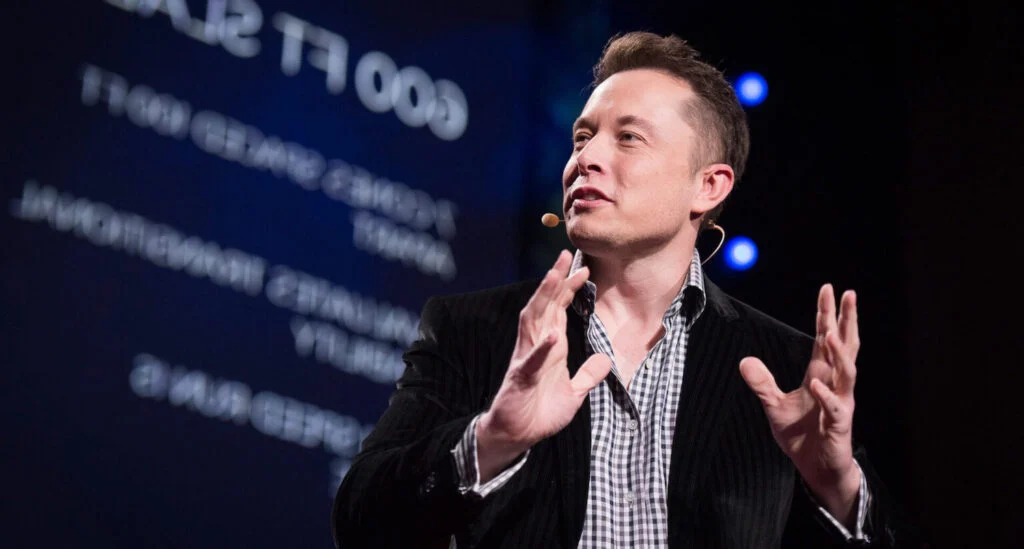Musk has owned Twitter under a week and big names are already leaving the platform, complaining about a hate surge, and calling for tighter regulation
That didn’t take long. It’s been four days since Elon Musk finalized his $44 billion takeover of Twitter, and already he’s facing pushback from celebrities, lawmakers, and advertisers worried about how the social network will change under his leadership, even as many conservative voices rejoice.
Sen. Amy Klobuchar is among those voicing concerns. Asked Sunday on NBC’s Meet the Press whether she trusts Musk now that he runs Twitter, she replied, “No, I do not.”
The Minnesota Democrat wants more content moderation and less immunity for social networks that amplify hate speech.
Referring to the man who attacked House Speaker Nancy Pelosi’s husband this week, she said, “He was posting antisemitic tropes, he was showing memes that showed violence and all of this election-denying, pro-Trump, MAGA-crowd rhetoric. That’s what we’re dealing with here…I just don’t think people should be making money off of passing on this stuff that’s a bunch of lies.”
Noting that TV networks have to screen commercials for false information before they air, she said companies like Twitter do not face similar requirements.
”We have to change the requirements on these companies,” she said. “They’re making money off of us. They’re making money off of this violence.”
‘Scary AF’ tweets
Meanwhile NBA star LeBron James tweeted yesterday that the surge in N-word use on Twitter since Musk’s takeover was “scary AF,” and added that he hoped Musk “and his people take this very seriously.”
I dont know Elon Musk and, tbh, I could care less who owns twitter. But I will say that if this is true, I hope he and his people take this very seriously because this is scary AF. So many damn unfit people saying hate speech is free speech. https://t.co/Sy0jvXIBnC
— LeBron James (@KingJames) October 29, 2022
That followed the Network Contagion Research Institute—a social media research firm—reporting that use on the N-word spiked 500% on Twitter in the 12 hours after Musk took control.
Evidence suggests that bad actors are trying to test the limits on @Twitter. Several posts on 4chan encourage users to amplify derogatory slurs.
For example, over the last 12 hours, the use of the n-word has increased nearly 500% from the previous average. pic.twitter.com/mEqziaWuMF
— Network Contagion Research Institute (@ncri_io) October 28, 2022
Antisemitic memes also jumped, and so did the word “plandemic”—shorthand for a conspiracy theory in which elites are using the pandemic to gain power and profit off vaccines—according to Dataminr, which also analyzes social media, Bloomberg reported.
In response to James’ complaint, Musk shared a tweet from a Twitter employee reading, “Nearly all of these accounts are inauthentic. We’ve taken action to ban the users involved in this trolling campaign — and are going to continue working to address this in the days to come to make Twitter safe and welcoming for everyone.”
But some Hollywood power players have already decided to leave Twitter. Yesterday Shonda Rhimes, the TV screenwriter, producer, and author behind hit shows like Scandal and Grey’s Anatomy, tweeted that she would be leaving the platform, writing simply: “Not hanging around for whatever Elon has planned. Bye.”
That followed This Is Us executive producer Ken Olin tweeting Friday, “I’m out of here.”
‘Free-speech absolutist’
Of course, many conservative pundits and lawmakers are delighted that Democratic lawmakers and Hollywood elites are upset with Musk’s Twitter takeover, having long believed—like Musk himself—that the social network was overly strict and suppressive.
“Free speech. Liberal tears,” tweeted Rep. Jim Jordan of Ohio on Friday. Jordan is strong ally of former President Donald Trump, who the previous leadership of Twitter banned from the platform—and who Musk might welcome back.
Trump himself wrote on his rival social platform Truth Social: “I am very happy that Twitter is now in sane hands, and will no longer be run by Radical Left Lunatics and Maniacs that truly hate our country.”
Meanwhile Texas Sen. Ted Cruz told Fox News on Friday: “I think Elon Musk buying Twitter is one of the most significant developments for free speech in modern times.”
Podcaster Joe Rogan, for his part, on Saturday praised Musk—a self-described “free-speech absolutist”—for wanting to restore a “reasonable exchange of ideas” on the platform.
“I think we have a real problem with discourse on Twitter,” he added. “What some would like to do is silence those that have opposing viewpoints, and then you get all this positive feedback from all the people that agree with you.”
This spring, when the Twitter takeover drama began, Musk tweeted: “By ‘free speech’, I simply mean that which matches the law. I am against censorship that goes far beyond the law. If people want less free speech, they will ask government to pass laws to that effect. Therefore, going beyond the law is contrary to the will of the people.”
On Friday, Musk tweeted, “To be super clear, we have not yet made any changes to Twitter’s content moderation policies,” adding, “Twitter will be forming a content moderation council with widely diverse viewpoints. No major content decisions or account reinstatements will happen before that council convenes.”
A day earlier, he rushed to reassure advertisers on Twitter that the platform wouldn’t become a “free-for-all hellscape.”
Not all of them are convinced, yet.
General Motors said it would temporarily pause advertising on Twitter, adding, “We are engaging with Twitter to understand the direction of the platform under their new ownership.”
This story was originally featured on Fortune.com

